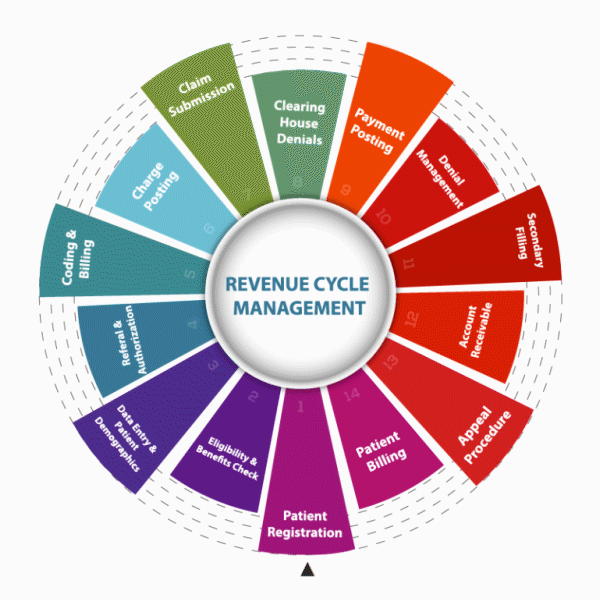In the realm of healthcare, financial management plays a pivotal role. Revenue Cycle Management (RCM) stands at the forefront of this sphere, encompassing a myriad of processes that extend far beyond the confines of traditional medical billing and coding. This article aims to elucidate the intricate tapestry of RCM and its critical role in healthcare organizations.
Exploring the Depths of RCM:
More Than Just Billing: A Comprehensive Process
- RCM is the financial backbone of healthcare encounters, overseeing the entire lifecycle from patient entry to final account settlement.
The Starting Point: Patient Scheduling and Registration
- The journey begins with patient scheduling and registration, setting the stage for a structured financial interaction.
Insurance Verification: A Critical Step
- Verifying insurance coverage and patient eligibility is crucial for seamless financial operations and minimizing the risk of claim denials.
The Art of Medical Coding
- Accurate medical coding is essential in translating healthcare services into billable entities, forming the foundation of effective billing.
Navigating Claims and Denials
- RCM involves diligent management of claims submissions, along with a proactive approach to handling denials and underpayments.
The Final Frontier: Payment Posting and Collections
- The cycle concludes with meticulous payment posting, ensuring every financial transaction is accounted for, and managing patient collections diligently.
Conclusion: RCM is not merely a financial procedure; it is an integral component that ensures the economic health and efficiency of healthcare institutions. It intertwines various administrative and clinical aspects, ensuring healthcare providers are remunerated for their medical billing services and patients are afforded transparent billing experiences.

Comments
Post a Comment